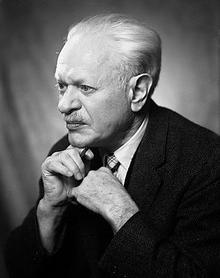
Persuasion or persuasion arts is an umbrella term for influence. Persuasion can influence a person's beliefs, attitudes, intentions, motivations, or behaviours.

Public speaking, also called oratory, is the act or skill of delivering speeches on a subject before a live audience.

Rhetoric is the art of persuasion. It is one of the three ancient arts of discourse (trivium) along with grammar and logic/dialectic. As an academic discipline within the humanities, rhetoric aims to study the techniques that speakers or writers use to inform, persuade, and motivate their audiences. Rhetoric also provides heuristics for understanding, discovering, and developing arguments for particular situations.
A sophist was a teacher in ancient Greece in the fifth and fourth centuries BCE. Sophists specialized in one or more subject areas, such as philosophy, rhetoric, music, athletics and mathematics. They taught arete, "virtue" or "excellence", predominantly to young statesmen and nobility.
In rhetoric, anthimeria or antimeria, means using one part of speech as another, such as using a noun as a verb: "The little old lady turtled along the road." In linguistics, this is called conversion; when a noun becomes a verb, it is a denominal verb, when a verb becomes a noun, it is a deverbal noun.
Appeal to emotion or argumentum ad passiones is an informal fallacy characterized by the manipulation of the recipient's emotions in order to win an argument, especially in the absence of factual evidence. This kind of appeal to emotion is irrelevant to or distracting from the facts of the argument and encompasses several logical fallacies, including appeal to consequences, appeal to fear, appeal to flattery, appeal to pity, appeal to ridicule, appeal to spite, and wishful thinking.

Logos is a term used in Western philosophy, psychology and rhetoric, as well as religion ; among its connotations is that of a rational form of discourse that relies on inductive and deductive reasoning.

In a jury trial, the Chewbacca defense is a legal strategy in which a criminal defense lawyer tries to confuse the jury rather than refute the case of the prosecutor. It is an intentional distraction or obfuscation.
In Ancient Greek philosophy, techne is a philosophical concept that refers to making or doing. Today, while the Ancient Greek definition of techne is similar to the modern definition and use of "practical knowledge", techne can include various fields such as mathematics, geometry, medicine, shoemaking, rhetoric, philosophy, music, and astronomy.

Kenneth Duva Burke was an American literary theorist, as well as poet, essayist, and novelist, who wrote on 20th-century philosophy, aesthetics, criticism, and rhetorical theory. As a literary theorist, Burke was best known for his analyses based on the nature of knowledge. Further, he was one of the first individuals to stray from more traditional rhetoric and view literature as "symbolic action."

Ethos is a Greek word meaning 'character' that is used to describe the guiding beliefs or ideals that characterize a community, nation, or ideology; and the balance between caution, and passion. The Greeks also used this word to refer to the power of music to influence emotions, behaviors, and even morals. Early Greek stories of Orpheus exhibit this idea in a compelling way. The word's use in rhetoric is closely based on the Greek terminology used by Aristotle in his concept of the three artistic proofs or modes of persuasion alongside pathos and logos. It gives credit to the speaker, or the speaker is taking credit.
Pathos appeals to the emotions and ideals of the audience and elicits feelings that already reside in them. Pathos is a term used most often in rhetoric, as well as in literature, film and other narrative art.
Gorgias is a Socratic dialogue written by Plato around 380 BC. The dialogue depicts a conversation between Socrates and a small group of sophists at a dinner gathering. Socrates debates with the sophist seeking the true definition of rhetoric, attempting to pinpoint the essence of rhetoric and unveil the flaws of the sophistic oratory popular in Athens at the time. The art of persuasion was widely considered necessary for political and legal advantage in classical Athens, and rhetoricians promoted themselves as teachers of this fundamental skill. Some, like Gorgias, were foreigners attracted to Athens because of its reputation for intellectual and cultural sophistication. Socrates suggests that he (Socrates) is one of the few Athenians to practice true politics (521d).

Inventio, one of the five canons of rhetoric, is the method used for the discovery of arguments in Western rhetoric and comes from the Latin word, meaning "invention" or "discovery". Inventio is the central, indispensable canon of rhetoric, and traditionally means a systematic search for arguments.

Aristotle's Rhetoric is an ancient Greek treatise on the art of persuasion, dating from the 4th century BCE. The English title varies: typically it is Rhetoric, the Art of Rhetoric, On Rhetoric, or a Treatise on Rhetoric.
Aristotle first used the term ethics to name a field of study developed by his predecessors Socrates and Plato which is devoted to the attempt to provide a rational response to the question of how humans should best live. Aristotle regarded ethics and politics as two related but separate fields of study, since ethics examines the good of the individual, while politics examines the good of the city-state, which he considered to be the best type of community.

Rhetoric of science is a body of scholarly literature exploring the notion that the practice of science is a rhetorical activity. It emerged after a number of similarly oriented topics of research and discussion during the late 20th century, including the sociology of scientific knowledge, history of science, and philosophy of science, but it is practiced most typically by rhetoricians in academic departments of English, speech, and communication.
Rhetorical reason is the faculty of discovering the crux of the matter. It is a characteristic of rhetorical invention (inventio) and it precedes argumentation.
Rhetorical stance refers to the deliberate choices made by a communicator in shaping and presenting their message. It encompasses the strategic decisions regarding language, style, and tone that are employed to achieve a specific communicative purpose. This concept is deeply rooted in rhetorical theory and is a fundamental aspect of effective communication across various disciplines, including literature, public speaking, and academic writing.

The classical education movement or renewal advocates for a return to a traditional education based on the liberal arts, the canons of classical literature, the fine arts, and the history of civilization. It focuses on human formation and paideia with an early emphasis on music, gymnastics, recitation, imitation, and grammar. Multiple organizations support classical education in charter schools, in independent faith-based schools, and in home education. This movement has inspired several graduate programs and colleges as well as a new peer-reviewed journal, Principia: A Journal of Classical Education.








